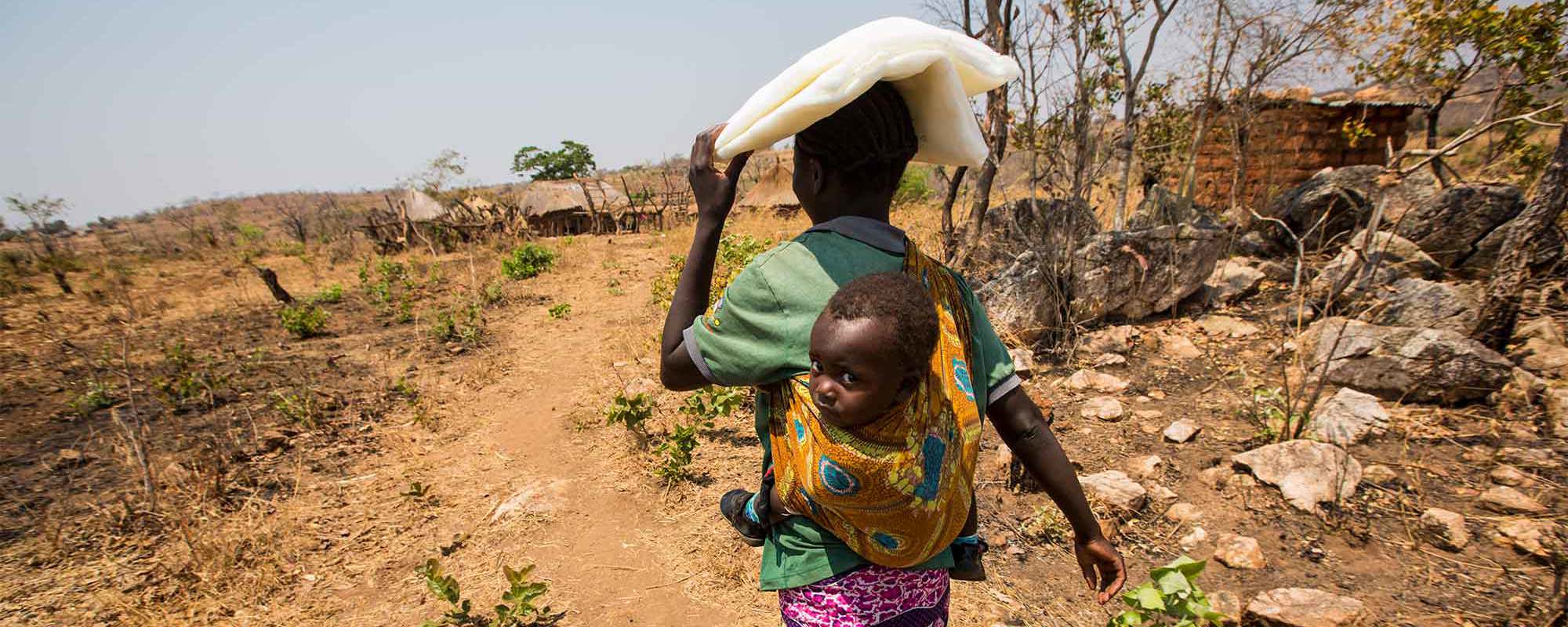

Felled by a Warming World: Will Malaria Be the Next Pandemic?
The next global health crisis might not be another pandemic caused by a novel respiratory infection. Instead, we could see climate change dramatically increasing the threat from an existing infectious disease–for example, malaria, a disease that kills one child every minute of every day.
Malaria, like other vector-borne diseases, reacts quickly to changes in climate, with epidemiology of the disease evolving rapidly in response to shifting rainfall patterns and warmer temperatures. Already we are seeing malaria cases at higher altitudes in places like Ethiopia and Kenya, where up to now low temperatures offered protection from mosquitoes. The increasing frequency of extreme weather events, such as violent cyclones and unforeseen floods, lead to sudden surges in malaria infections and deaths. After the devastating floods in Pakistan, malaria infections more than quadrupled. Despite massive efforts, including additional emergency funding from the Global Fund, deaths from malaria soared, far exceeding the number of people who died from drowning or otherwise directly from the floods. Countries like Malawi and Mozambique, hit by Cyclone Freddy in February 2023, know that the floods and stagnant water resulting from such a storm create ideal locations for mosquitoes to breed and can quickly lead to sharp increases in malaria cases.
As always, it’s the poorest and most vulnerable who are the most exposed to such dynamics. There’s already an almost perfect overlap between the communities designated by the Intergovernmental Panel on Climate Change (IPCC) as “highly vulnerable to effects of climate change” and those most heavily hit by malaria. Ninety-five percent of malaria infections and 96% of malaria deaths occur in the World Health Organization’s Africa Region. Children under 5 account for over 80% of deaths, with pregnant women being the most at-risk adults.
Influenced by these environmental changes, we are also seeing shifts in where different species of mosquito live and thrive. For example, Anopheles stephensi, until recently found largely in Asia, has now been identified across multiple parts of Africa. The Anopheles stephensi species adapts more easily to urban conditions than most mosquitoes, and unlike the Anopheles species currently most prevalent in Africa, can carry both types of malaria parasites, Plasmodium falciparum and Plasmodium vivax. So malaria control programs in Africa now have to contend with both a new mosquito and a new malaria parasite.
Of course, climate change is not the only challenge. We are also encountering increasing resistance of malaria-carrying mosquitoes to existing pyrethroid-based insecticides and increasing resistance of malaria parasites to existing artemisinin-based treatments. While there are alternatives, such as dual active ingredient bed nets, these are all more costly.
Conflicts also increase the cost of providing lifesaving health services. Whether in Mali, South Sudan or Myanmar, conflict makes it much more difficult and expensive to fight malaria.
Confronted with such a perfect storm of simultaneous challenges, we face a frightening risk of seeing many of the hard-won gains of the last two decades of fighting malaria rolled back, with infections and death rising across the world, in places already hard hit, in those that thought they were rid of the disease, and in places that never suffered from it.
We cannot let this happen. For a disease like malaria, global warming is like pouring gasoline on a fire. Of course, we must do whatever we can to slow or stop the pace of climate change. But we should also douse the fire. With more money and accelerated introduction of the latest innovations in vector control, diagnosis and treatment, we could drastically reduce the potential for climate change and resistance to cause an explosion in malaria infections and deaths.
Investment in more effective and resilient systems for health is key. Disease surveillance systems, laboratory networks, supply chains and community health workers are vital to defeating malaria. Such capacities and infrastructure are also key to detecting and responding to any future pathogen of pandemic potential. Defeating malaria is not an alternative to investing in better pandemic preparedness, but a path towards it, and one that has the extra benefit of saving hundreds of thousands of children’s lives.
Defeating malaria is also one of the most powerful ways to create greater capacity in rural health systems to counter other diseases. In many rural parts of Africa, malaria already overwhelms local health system capacities. Yet where malaria has been successfully reduced, the same community health facilities are able to step up on other critical services, such as maternal health or chronic diseases like diabetes or heart disease.
For the last two decades, World Malaria Day has been an occasion to celebrate the progress we have made against one of the longest-lasting and deadliest pandemics that humanity has ever faced. Yet this year, it was an occasion to raise the alarm. With climate change and resistance, the fight against malaria will get much more difficult, so now is the time to act decisively–before malaria, arguably our oldest pandemic, becomes the next pandemic to threaten us all.
This op-ed was first published in Forbes.







